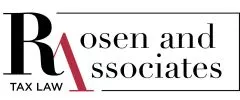In the notable decision of 3295940 Canada Inc v The King, the Federal Court of Appeal ("FCA") recently overturned a General Anti-Avoidance Rule ("GAAR") assessment, shedding light on the complexities of tax planning and the boundaries of tax avoidance.
Background
The case involved Gestion Micsau Inc. ("Micsau") and its subsidiary, 3295940 Canada Inc. ("3295"), which held a minority stake in a company involved in the generic drug business. Micsau sought to reduce its tax liability during the sale of the business to Novartis Pharmaceuticals Canada Inc. by leveraging its higher adjusted cost base ("ACB").
The Transactions
Micsau faced restrictions on directly selling its shares in 3295. To address this, Micsau orchestrated a series of complex transactions designed to replicate the tax consequences of a direct sale. These transactions included creating new shares, transferring shares between subsidiaries, merging entities, and cross-redemptions. Ultimately, these steps were intended to use Micsau's higher ACB to minimize the taxable capital gains.
The Tax Court's Ruling
The Tax Court applied the GAAR, asserting that the transactions constituted abusive tax avoidance. The Minister of National Revenue contended that the transactions, particularly the cross-redemption, circumvented tax provisions meant to prevent capital gains stripping and preserve the integrity of the capital gains and capital dividend taxation regimes.
The Tax Court agreed with the Minister's position, stating that the transactions abused the tax provisions related to capital gains and capital dividends. The court concluded that the primary purpose of the series was to obtain a tax benefit in a manner contrary to the object, spirit, and purpose of the Income Tax Act.
FCA Appeal
On appeal, the FCA took a different view, disagreeing with the Tax Court's interpretation. The appellate court argued that the transactions did not frustrate the objectives of the Income Tax Act when considering the series' overall result. While complex, the transactions did not illegitimately reduce taxable capital gains and adhered to lawful uses of ACB and capital dividends.
The FCA's decision hinged on a nuanced analysis of whether the series' outcome genuinely abused tax provisions or merely leveraged legitimate tax planning strategies. It highlighted errors in the Tax Court's assessment, particularly its failure to properly consider the entire series of transactions and their cumulative tax implications.
Key Takeaways from the FCA's Analysis
- Economic Substance: The appellate court emphasized that the series of transactions resulted in taxation of the capital gain that 3295 would have realized if it had sold its shares directly to Novartis. The cross-redemption did not reduce this capital gain but merely structured it differently.
- Legislative Intent: The court argued that the series did not abuse the intent of the relevant tax provisions. It distinguished between legitimate tax planning and abusive tax avoidance, underscoring that taxpayers have the right to structure their affairs to minimize taxes within the law.
- Alternative Transactions: The appellate court disagreed with the Tax Court's dismissal of alternative transactions. It suggested that these alternatives could have demonstrated that the series was not abusive if they achieved similar commercial results without significantly different tax consequences.
Conclusion
The FCA's decision in 3295940 Canada Inc v The King underscores the importance of considering the economic substance and overall results of complex tax planning arrangements when assessing for abusive tax avoidance. It also reinforces the need for a holistic analysis in determining whether a series of transactions frustrates the statutory objectives of the Income Tax Act.
This case highlights the delicate balance between tax planning and tax avoidance, emphasizing that while taxpayers can structure their affairs to minimize tax liability, they must do so in a manner that aligns with the spirit and purpose of the law.
The content of this article is intended to provide a general guide to the subject matter. Specialist advice should be sought about your specific circumstances.



